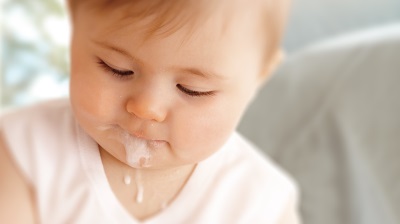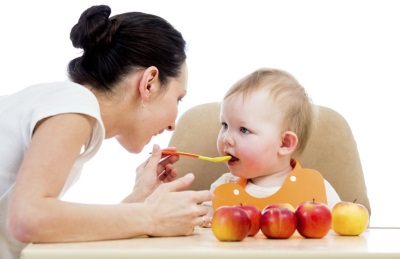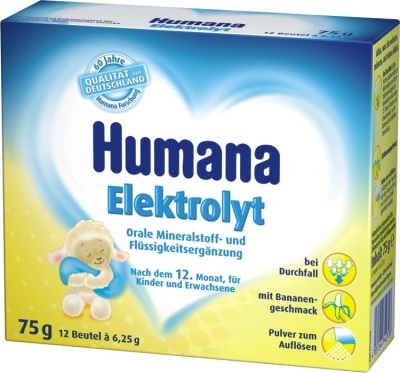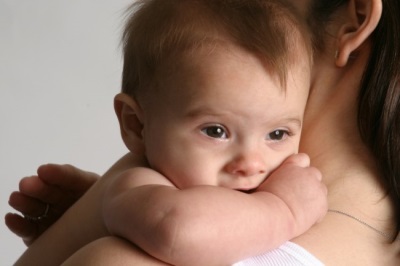Vomiting in infants after feeding
Vomiting in an infant can be a very serious symptom requiring immediate parental response. In the first place, it is dangerous dehydration. What causes vomiting? In which cases it is important to immediately show the child to the doctor?
Differences of regurgitation from vomiting
Regurgitation is a normal process that does not require treatment, while vomiting is more common in diseases. In both cases, the stomach contents are released, which leads to difficulties when it is necessary to distinguish these two processes.
You can find out regurgitating a baby or vomiting by the following signs:
- When regurgitation is negligible, it is easily separated. The kid after him behaves as usual;
- The baby usually spits up after feeding, and vomiting occurs regardless of the time of feeding.
- Burping is very rarely repeated several times, and the seizures of vomiting are more often not solitary, but multiple.
- Children usually burp food unchanged (mixture or milk) or slightly coagulated, and with vomiting there may be overcooked food and gastric juice with bile (yellowish liquid).
- The state of health of the child when regurgitating is almost always good, and when vomiting is often worse.

The reasons
Many children occasionally vomit, but, as a rule, it happens only once and does not indicate the presence of a serious illness, so you can help the child at home. But sometimes it can be a sign of a disease that requires medical intervention.
The appearance of vomiting in infants may be due to the following reasons:
- Fast feeding and overeating;
- Mix change;
- Failure of mom hygiene;
- Violations mom diet;
- Introduction of complementary foods;
- Milk intolerance;
- Long and strong crying;
- Pilorestenosis;
- Cough;
- Intestinal infection, gastroenteritis;
- Poisoning;
- Concussion;
- Meningitis;
- Appendicitis.
Vomiting due to overfeeding or fast feeding is fairly harmless and appears when more food has come into the stomach of the crumbs than it can contain and digest. To avoid such vomiting, you do not need to feed the baby more than it should be (if the baby is fed a mixture), and after eating for half an hour, you should not bathe the baby or actively play with it. If in other respects he seems healthy, there is no cause for concern.
In children under one year old, vomiting can be provoked by a new mixture. You should change the diet only for a good reason after consulting with a pediatrician. Besides, introduce a new mixture should be gradually.

If the mother does not follow the rules of hygiene and does not monitor her diet, then these are risk factors for the development of infectious diseases, manifested by vomiting. The use of fattening, sharp and salty foods by a nursing mother can disrupt the digestion of the crumbs.
The baby can react to vomiting and to complementary foods. In this case, it is not necessary to panic if the episode of vomiting was once. So the baby's body could respond to an unfamiliar product. It is important to start feeding up with one-component products, not to give the crumbs food that has been left open for a long time, and also always check the expiration dates.
Especially often vomiting occurs when intestinal infections. Diarrhea joins it, which is especially dangerous with large fluid losses. The disease threatens the life of the baby, therefore it requires immediate medical attention. No less dangerous cause of vomiting and poisoning.
Vomiting can develop in children and in such serious diseases as appendicitis, meningitis, pneumonia, incarceration of a hernia, and others.
In case of pilorestenosis, the muscle ring, which is located at the transition from the stomach to the duodenum, is thickened, as a result of which it does not allow food to pass into the thin stomach. The food stays in the stomach, and then comes out with vomiting. Therefore, the child wants to eat and, despite frequent feeding, the baby's weight decreases, and the milk is not absorbed. With this diagnosis, surgery is necessary.
Concussion may cause vomiting. If a child has fallen from a great height, has lost consciousness, his movements are uncoordinated, it is important to immediately consult a doctor.
Symptoms for immediate referral to a pediatrician
You should immediately consult a doctor if the child:
- refuses food;
- sleepy and sluggish;
- his body temperature rose;
- bouts of vomiting repeated more often 3 times a day or was repeated within 6 hours;
- loose stools;
- the baby has a swollen belly or it hurts;
- if there are signs of dehydration: lips, tongue dry, urinating scanty or sparse, and urine darker than usual;
- if there is blood in the vomitus;
- on the diaper there is blood or mucus.
Do not waste time and do not treat the baby yourself, but immediately call an ambulance.
What you need to do before the arrival of the doctor
Since vomiting is dangerous due to the rapid development of dehydration, parents should not just wait for an ambulance or local doctor, but are obliged to ensure that the crumbs of the liquid he needs enter the body. It is important to begin to compensate for fluid loss immediately after an attack of vomiting. For nursing babies, attachment to the breast will be the best way to fill in the fluid lost during vomiting.
Also, children are recommended to give solutions of pharmaceutical preparations containing the necessary electrolytes. If you do not have the opportunity to buy a pharmacy drug, prepare an analogue at home by dissolving salt (a teaspoon without a slide) and sugar (4 to 6 teaspoons) in one liter of boiled water. This solution can be stored for up to 24 hours.

The child should not be given to drink tea, sweet soda, broth from Chicken, fruit juice, cow's milk and even rice water. In such drinks there are no electrolytes lost during vomiting, therefore they will only worsen the condition.
So, what should be done with vomiting in an infant baby before the arrival of a pediatrician:
- Give the baby breast more often (if breastfeeding).
- Often offer baby mix (if the baby is bottle-fed). Change the mixture is not necessary.
- In addition to milk and the mixture, give the baby 60 to 120 ml. solution with electrolytes after each attack of vomiting. It is necessary to give such a solution in small doses through a bottle with a nipple or from a spoon. You can also give the solution with a syringe, which does not have a needle.
- If the baby drank the specified amount of solution, but still wants to drink, give him the solution further until he quenches his thirst.
- If the baby snatched the solution he had just drunk, try to water the baby again, giving the liquid several milliliters with small interruptions.
- From foods for babies older than 6 months, you can give rice, apple puree, crackers, and bananas.
- Before the arrival of the doctor, it is not recommended to give the child any medications - antibiotics, medicines for diarrhea, sorbents, prebiotics, antiemetics, and others. Many of these drugs can not only "smear" the overall picture of the disease, but also cause complications of the baby's condition.
If you think your baby has been poisoned by drugs or food, you should immediately call a doctor and inform him of possible causes. Take with you a sample of the substance or packaging from under it.
Hygiene
- To avoid infection by microbes that cause acute intestinal or infectious poisoning, wash your hands, feeding bottles, cups, spoons and nipples more often. In this case, it is better for them to allocate a special place in the house.
- Babies need to wash their hands after using the toilet, before eating, after the street.
- After feeding, you need to thoroughly wash the dishes using soapy water, and in the first year they should be periodically sterilized. All these actions are needed in order to remove milk residues, because dangerous microorganisms multiply rapidly in them.











